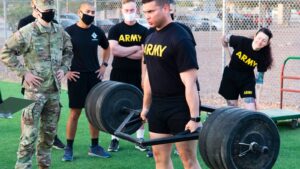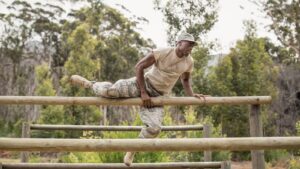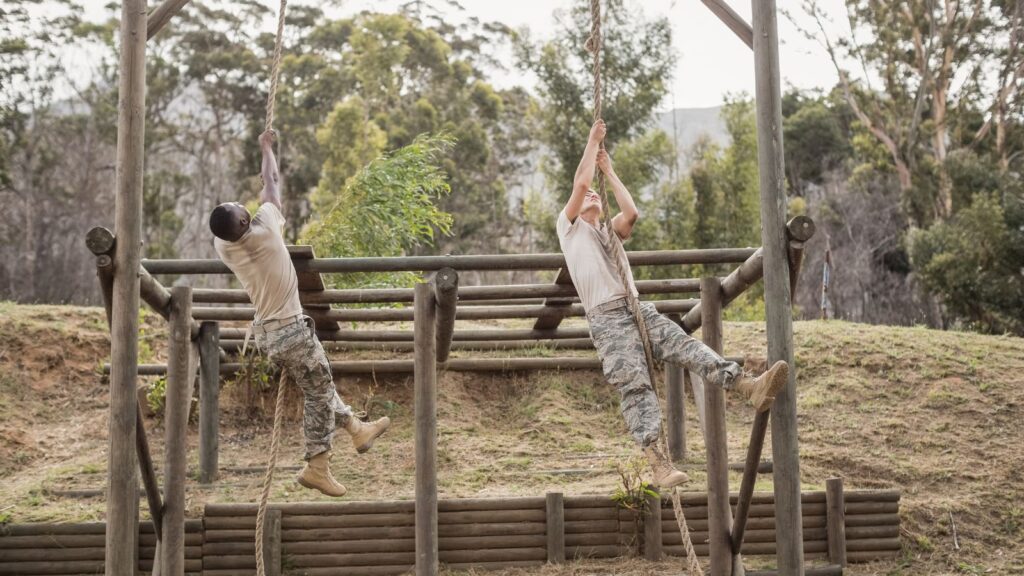Bracing for the rigors of army basic training tips? You’re not alone. Every year, thousands of recruits step into the demanding world of military life, eager yet anxious about the trials ahead. This article aims to equip you with the knowledge you need to face these challenges head-on.
Army Basic Training Tips
Army basic training tips, often dubbed boot camp, equips recruits with the knowledge and skills they’ll use throughout their military career. This section delves deeper, drawing attention to the role and importance of basic training, and the expectations one needs to factor in.
Role and Importance of Basic Training
 Basic training serves as a crucial transition phase, turning civilians into soldiers. Over the span of several weeks, recruits learn essential military skills, from discipline and weapon handling to physical fitness and teamwork. The importance of this training cannot be overstated; it instills in recruits a sense of responsibility, preparation for combat situations, and an understanding of military life and culture.
Basic training serves as a crucial transition phase, turning civilians into soldiers. Over the span of several weeks, recruits learn essential military skills, from discipline and weapon handling to physical fitness and teamwork. The importance of this training cannot be overstated; it instills in recruits a sense of responsibility, preparation for combat situations, and an understanding of military life and culture.
During this period, trainers emphasize the Army Values: loyalty, duty, respect, selfless service, honor, integrity, and personal courage (LDRSHIP). These values, ingrained during basic training, become a guiding compass for a soldier’s behavior, decision-making, and actions throughout commitment to service.
Expectations at Basic Training
There are set expectations when signing up for basic training. First and foremost, it’s important to note that it’s not an easy ride. Recruits should anticipate a demanding physical and mental regimen, designed to push them beyond their comfort zones.
 Boot camp structures around early morning physical drills, coupled with classroom instruction, tactical skill training, and ongoing evaluations. Discipline is a driving force, and recruits are expected to follow orders promptly, wear their uniforms correctly, maintain cleanliness in their surroundings, and treat others with respect.
Boot camp structures around early morning physical drills, coupled with classroom instruction, tactical skill training, and ongoing evaluations. Discipline is a driving force, and recruits are expected to follow orders promptly, wear their uniforms correctly, maintain cleanliness in their surroundings, and treat others with respect.
Equally important is the expectation to improve. Regardless of early performances, basic training is meant to nurture transformation in strength, endurance, resilience, and military skills. This journey demands dedication, discipline, and perseverance from the recruits.
Navigating Through Challenges in Army Basic Training
Managing Stress and Fatigue
Soldiers often grapple with stress and fatigue during rigorous training. A fit body copes better, so consistent physical conditioning tops the priority list. Regular exercise, before recruits sign up, tones muscles and builds stamina, prepping the body for grueling training sessions. Sufficient rest rejuvenates recruits, boosting energy levels and mental acuity for the following day’s drills. Moreover, effective time management helps reduce stress, allowing time for relaxation and recovery.
For instance, keeping up on assigned tasks, like daily responsibilities or individual assignments, avoids last-minute rushes that could elevate stress levels. There’s also the importance of a balanced diet to maintain energy levels – nutritious meals, packed with proteins like eggs or lean meats, complex carbs like whole grains, and a variety of fruits and vegetables are key.
Handling Homesickness
Homesickness remains a common struggle for many soldiers in training. Regular communication with loved ones can ease the pangs of distance, letters or photos offering familiar, comforting connections. It serves as a motivating force, reminding recruits of the reason behind their commitment and endurance.
 Savoring moments of downtime aids in handling homesickness. Pursuits like reading or journaling offer solace, serving as healthy distractions and expressions of emotion. Camaraderie also proves a potent antidote to homesickness – sharing experiences, participating in group activities, forging supportive friendships, it all builds a network of emotional support.
Savoring moments of downtime aids in handling homesickness. Pursuits like reading or journaling offer solace, serving as healthy distractions and expressions of emotion. Camaraderie also proves a potent antidote to homesickness – sharing experiences, participating in group activities, forging supportive friendships, it all builds a network of emotional support.
Above all, it’s the mental resilience, fostered through a positive mindset, that steers a recruit’s pathway through these challenges during Army Basic Training. It’s the perseverance and patience, honed through each training day, that breeds confident, competent soldiers fit for fields and futures.
Overcoming Challenges
Army basic training tips isn’t a walk in the park. It’s a crucible that molds civilians into disciplined soldiers. Perseverance, dedication, and discipline are crucial to overcoming the challenges. It’s about mastering military skills and Army Values, while also keeping up with hygiene, managing stress, and maintaining a balanced diet. It’s also about handling homesickness and keeping morale high.

